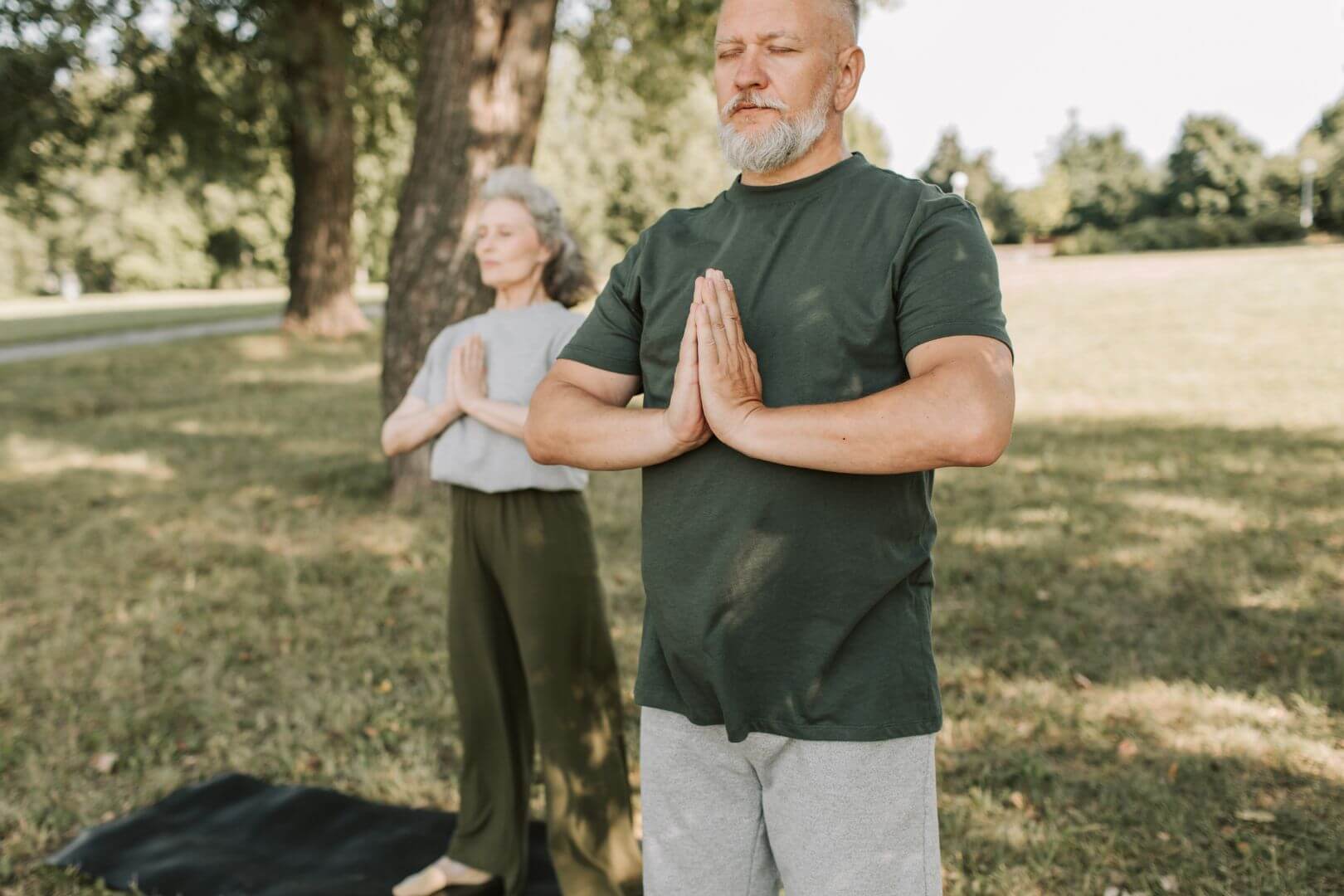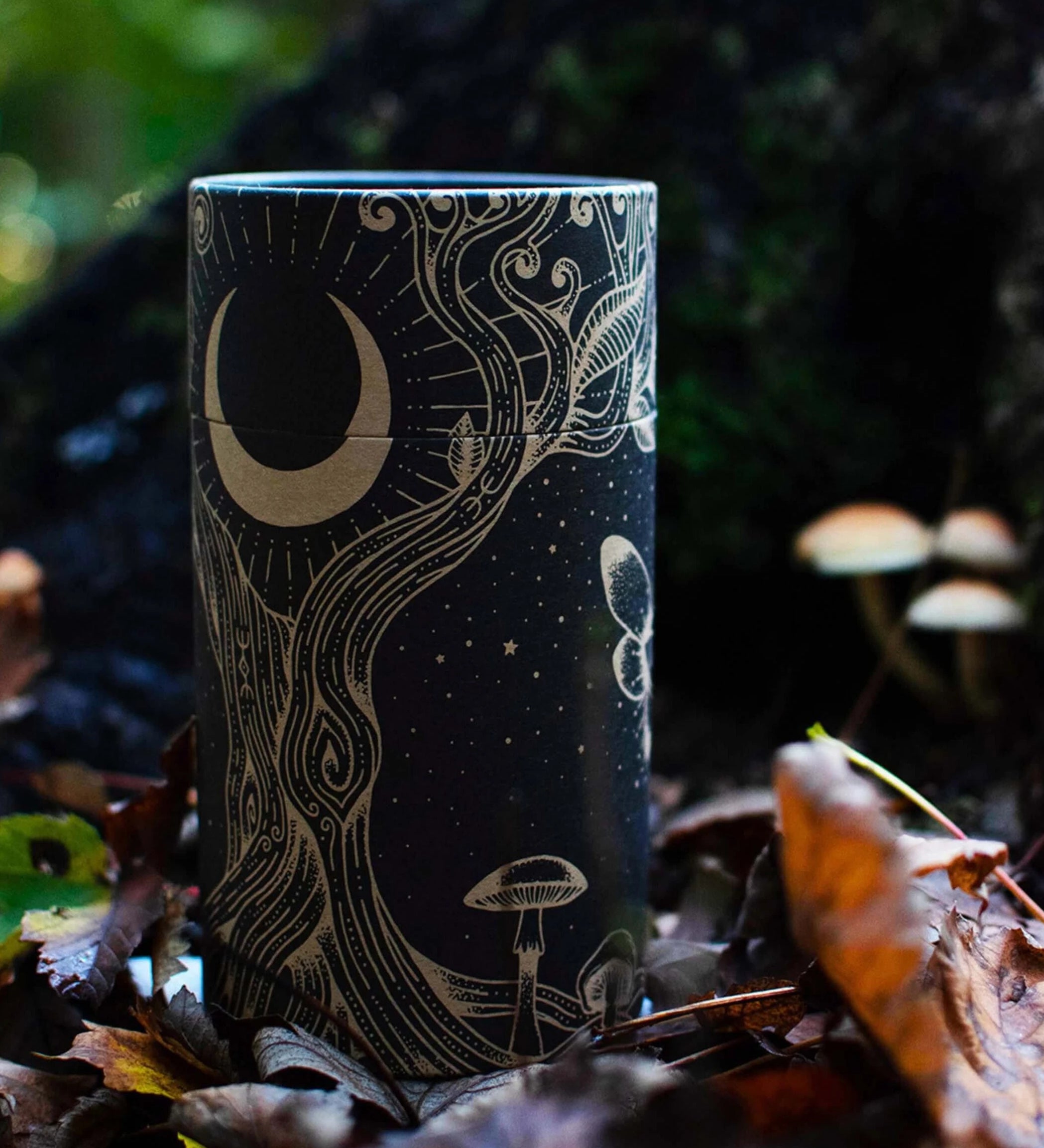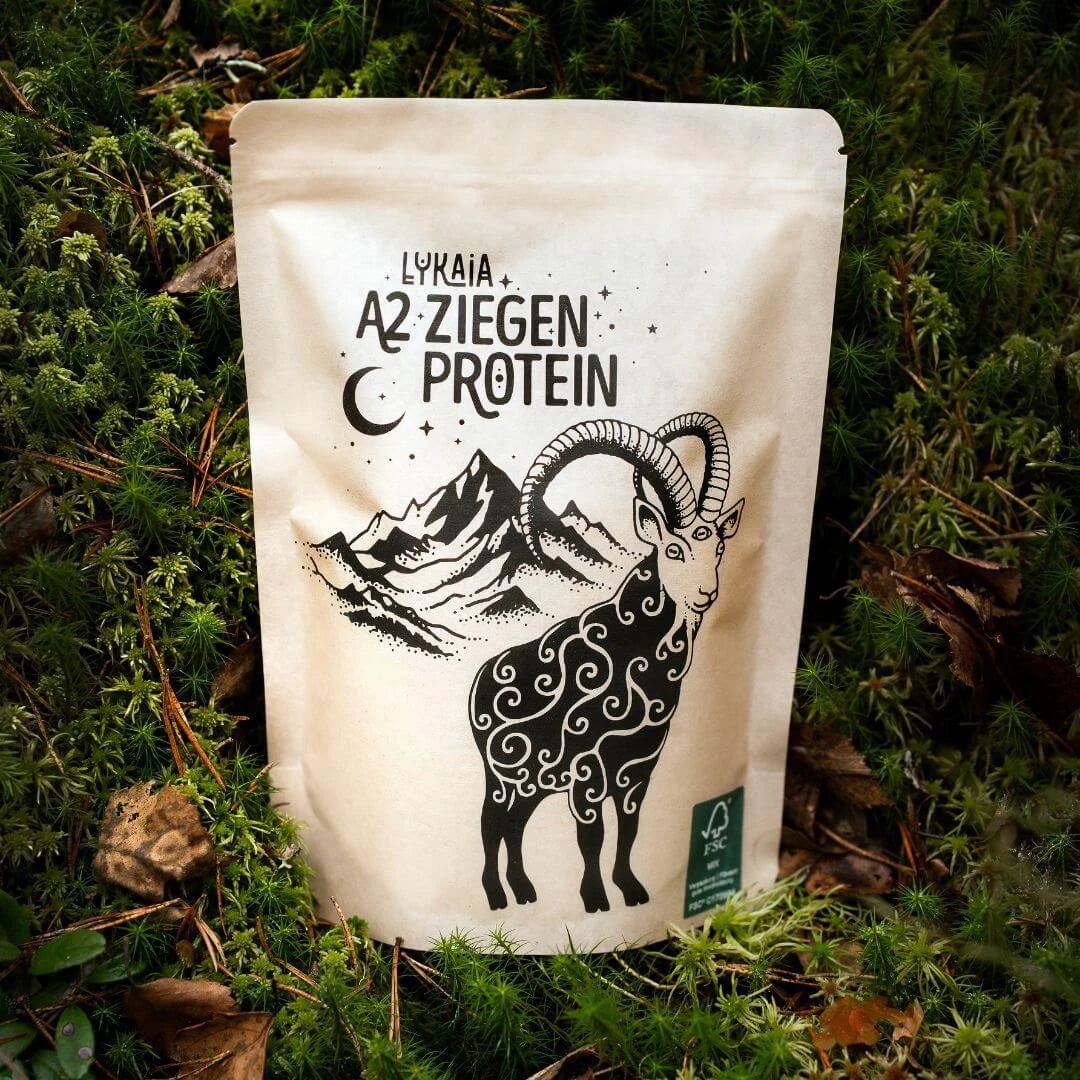Protein in aging: protection against muscle loss and sarcopenia

Maybe you've already heard this phrase:
“We don’t move less because we age – we age because we move less.”
This wisdom explains a major misunderstanding of our modern age. In this article we will explain to you what role protein, muscle mass and regular exercise play in aging and how you can keep your body healthy and productive for a long time.
Aging and the “typical” side effects
You've probably come across one of the following QVC sales pitch-like statements in newfangled (manipulating) magazines, TV reports and "expert" blogs:
Statement 1:
“Muscle volume decreases drastically by the age of 30 at the latest. Being very overweight is therefore inevitable - then at the latest you can watch your body vegetate. You can save yourself the protein shakes and protein-rich food.”
Critical, ironic assessment:
Yes, studies have proven to show how we lose almost 48% muscle mass every year. All because our internal clock has understood that we are now exactly 31 and no longer 30. So what is it all for? It's better to have a Mega Mäc from Mäc Ronaldo for breakfast, lunch and dinner. There are no individual differences at all. Fortunately, we can make it easy for ourselves and stick to blanket statements.

Statement 2:
“The cell renewal processes in our body drop dramatically from the age of 25 onwards - we are visibly aging - only the xyz skin cream from Farbea can help.”
Critical, ironic assessment 2:
These humanitarians with their skin creams. Charging €7 for 100 ml pots of paint, which should otherwise be in the hardware store next to wall paint because of their opacity, will certainly help you look like you're 20 even at 45 - but only if you use the creams every day - ideally over 20 years . In the practical multipack you are included in Farbea's long-term customer concept and pay annually in the subscription model.
Statement 3:
“Your metabolism literally falls asleep when you’re over 40. The last way: go for it again with the “Mega Wood Diet.”
Critical, ironic assessment 3:
Unique, innovative concept that has been scientifically proven in long-term studies. If you eat 3 birch trees and 2 oak trees every day, you will have all the minerals & vitamins you need. Long-term diet success is guaranteed. You can still treat yourself to 2 Snickers per week in our Eat 32.5% half diet. We just invented the study (or just observed 3 test subjects over 2 months). Seems to have become a socially acceptable concept now.

Yes, it's a bit exaggerated - admittedly: guilty. But between us? This is how the statements read once you have thought a little about the underlying topics. It's mostly scaremongering and senseless generalizations. Yes, it's true, we age. But is it really as catastrophic as portrayed?
The truth about aging, muscle loss and lifestyle
Sometimes you even hear the statements from fitness experts (with years of professional experience) who have set up their Instagram or YouTube channel according to scheme F with a “€15 - Become a successful online entrepreneur in just one month program” in order to attract new customers . The clicks and comments are at least guaranteed.
Are the assumptions about aging true?
The image in the media or among friends these days is worrying. Sure, we don't stay young forever. But it's too easy to blame everything solely on the fact that we add a year every year. Studies and long-term practical insights from fitness trainers, doctors and nutritionists show that aging processes can be greatly counteracted through a protein-rich, balanced diet and a healthy, exercise-rich lifestyle.
You certainly have people in your circle who, “despite their age” (whether 25, 30, 40, 50 or 65) appear significantly younger than the norm. Maybe you're one of them? Do people regularly judge you younger? Not just because of your looks, but because of your demeanor or does anyone come to mind?
We may not be in the family duel, but the similarity is obvious when we list the 5 most common reactions to a healthy appearance:
- You seem so full of life/alive!
- You don't even look your age!
- I would have thought you were much younger!
- Wow, you are so sporty!
- I wish I had your disposition/genetics!
Can you find yourself or someone you know in the top answers?
Sarcopenia, or age-related muscle loss
How is protein related to sarcopenia? Sarcopenia is age-related muscle loss. As we get older, we have a poorer metabolism for maintaining or building muscle. That's no secret. We don't contradict that. The problem is the unnecessary acceleration of the process.
For example, if you don't pay attention to your protein consumption, your body won't be able to synthesize muscle mass - worse, it will break down muscle to get the protein that we neglected to get through our diet. Because our muscles are basically the only real protein stores in the body. This means that we consistently lose muscle when we have a protein malnutrition.
What would be acceptable in childhood and adulthood, since we can quickly reverse this process, becomes problematic from the age of 60 at the latest. According to the DGE, the recommended protein intake for people aged 65 and over is increased to 1 g instead of 0.8 g per kilogram of body weight. Current studies recommend increasing protein intake from 65 years of age to 1.0 - 1.4 g per kilogram of body weight so that muscle mass is protected for as long as possible.
You can find out more about your individual protein needs here .
What can you do about age-related muscle loss and osteoporosis? Create the foundation in childhood and never let up!
The latest scientific findings recommend that you do light strength training as early as childhood. Contrary to the long-standing assumption that this is harmful to bones and growth, studies are now increasingly convinced of the opposite and admit it. Well-conducted strength training at a young age creates the basis for a long-lasting healthy body.
Muscle training increases performance at an early stage, the overall body image improves and bone substance increases. That is precisely the decisive factor. Bones can only be “strengthened” until the end of the 20th year. After that, we lose bone mass every year. The better the foundation of our bones, the slower they age!
However, targeted muscle training only works through sufficient protein consumption. This applies to every age group. At the same time, a healthy and balanced diet is essential. So instead of buying the skin cream from Farbea, pay attention to the ingredients.
Eat balanced and natural foods - try to regularly consume natural raw materials such as glycine, collagen, zinc and other proteins, minerals and vitamins through your diet and the effect comes from within. Your skin and overall body image will appear significantly younger within just a few weeks!
You can read more about protein and the special features of this macronutrient in our Lykaia Protein Guide .
Conclusion on signs of aging. The magic trick: eat healthy and exercise.
It is true. Aging has a big impact on your body. However, current research shows that our bodies are designed for a lifespan of 120 years. It is therefore largely up to us how many of these years we want to spend being active and healthy. We can't prevent everything. However, delaying is possible in the vast majority of cases. What you should definitely take with you is the following:
1. We “age” more slowly when we exercise regularly.
20-30 minutes a day are enough. Try evening walks. Go running, swimming, dancing or something else 1-2 times a week. This strengthens the muscles and stimulates growth. Strong muscles guarantee a more “natural” aging process and protect the bones!
2. A healthy diet is essential for an active and long life.
Pay attention to healthy, natural products. Think about your individual protein content. Especially if you are older than 60. Due to the slowed metabolic processes, we actually need more protein in old age. Especially then it is important to follow the minimum recommendations. You can find out more about this in thispost .
3. More muscle = better metabolism, better body composition and better bone substance.
Therefore, you should monitor your protein consumption throughout your life and adapt it to your individual requirements. Without protein = no muscle building. Without protein = muscle loss. Many people in old age have severe sarcopenia, largely due to low-protein diets. This often results in osteoporosis. Counteract this.

Genetics can be a factor, but not an excuse. Studies repeatedly come to “surprising” results. For example, when it comes to being overweight, in 98% of cases genetics is not a factor in the extra pounds. It is similar with premature signs of aging. And we're not talking about the receding hairline. Some things you really have no control over.
But overall, it has been shown again and again that a lack of exercise and poor nutrition can turn a 37-year-old person into an estimated 48-year-old person. At the same time, the reverse is often true.
That's how it stays: We age because we don't move. Move and you age more slowly. Promised!
We hope you now understand why we are such protein fans and advocate natural nutrition and a healthy lifestyle. It has been proven that many of the “everyday ailments” can be reduced or even completely combated through diet and exercise. Our appeal to you: exercise and eat healthy. You can find out more about this in this post.
Do you have any friends who have experience with muscle loss or sarcopenia? Do your parents or grandparents pay attention to their daily protein consumption? If not, support them.
Your Lykaia team
0 comments










